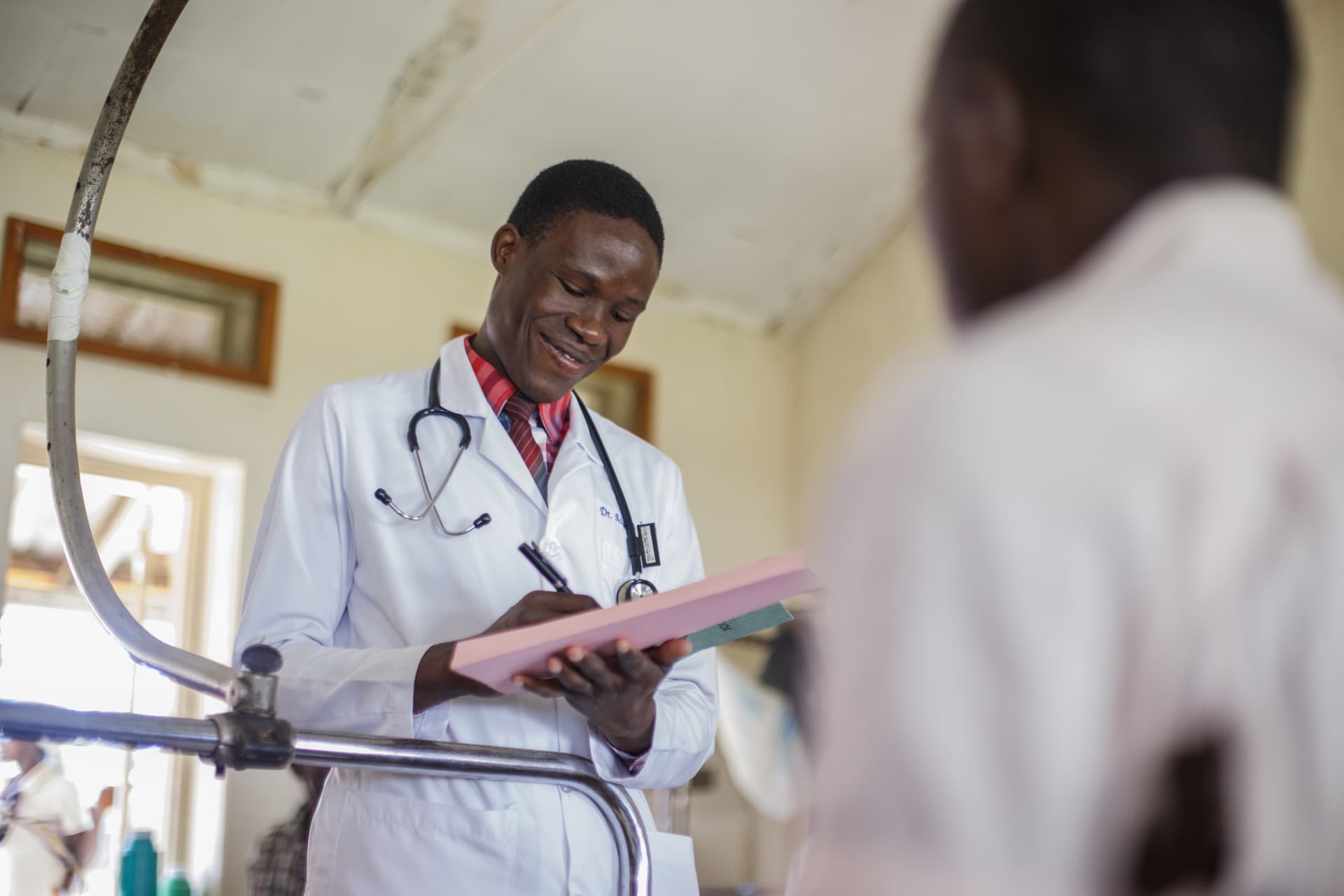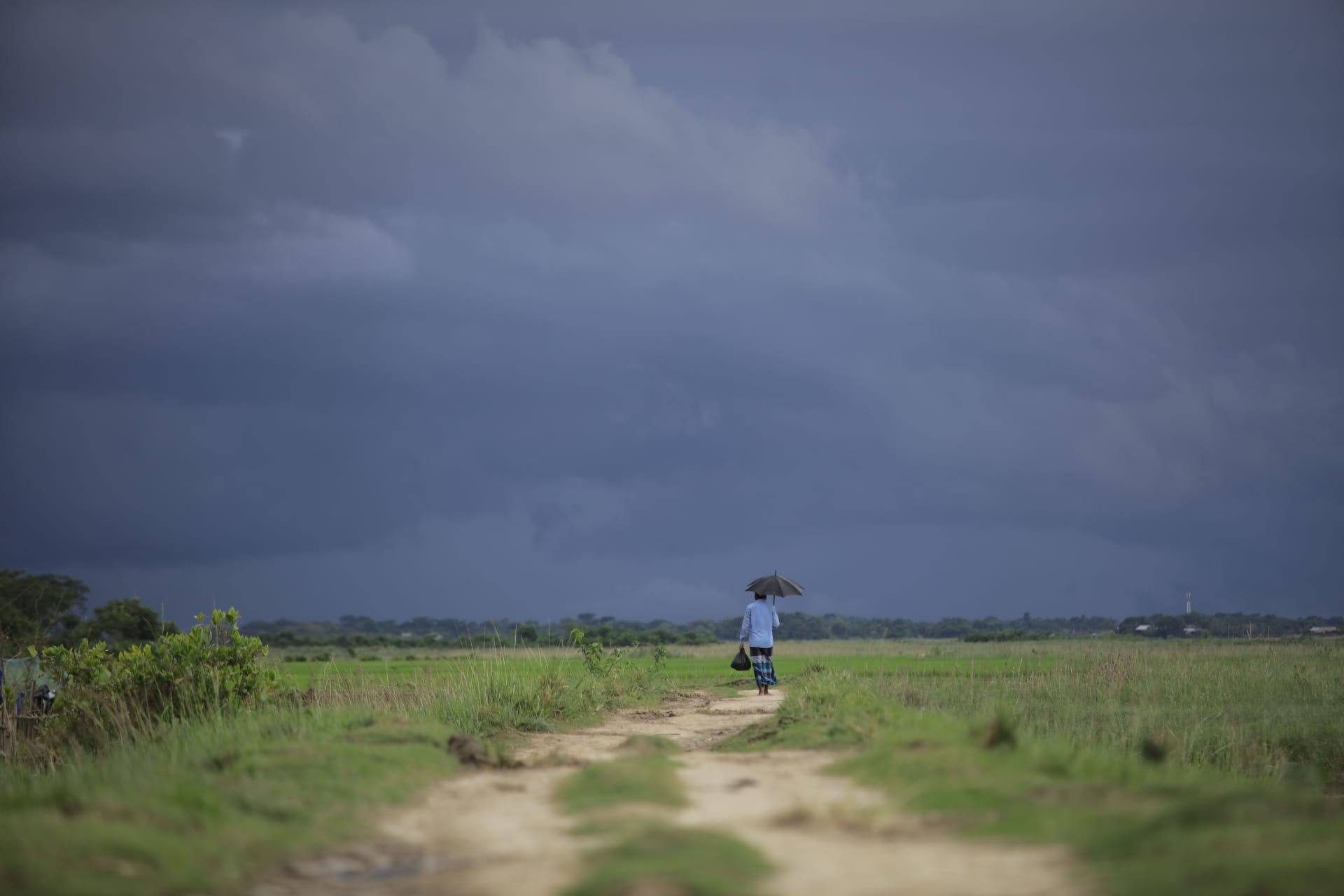Zambia’s first family medicine program overcomes the odds | Takeda Stories
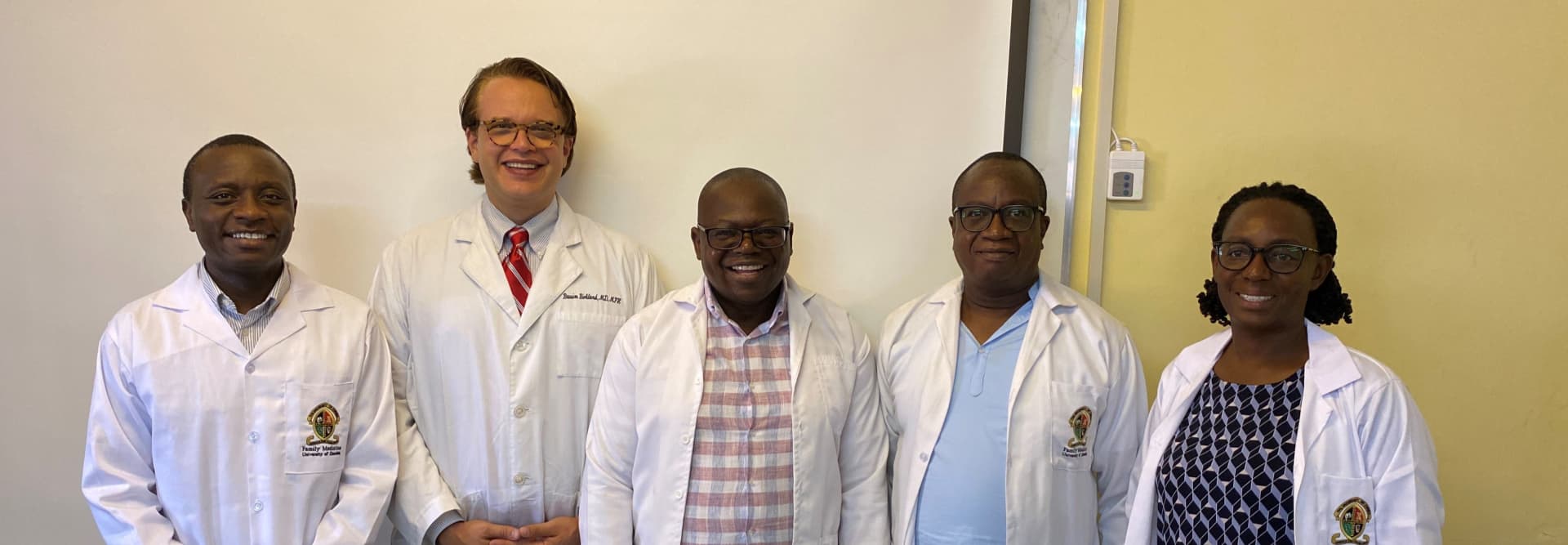
Zambia’s first family medicine program overcomes the odds
“There were only two trainees at the beginning. It looked like we were going nowhere.”
Dr. Mpundu Makasa recalls the uncertain start to Zambia’s first-ever graduate-level training program for family medicine physicians, which launched in 2019, as part of efforts to tackle the country’s shortage of health care professionals.
With a population of over 20 million, Zambia faces health care challenges that include a high burden of communicable diseases like malaria, tuberculosis and HIV, as well as emerging non-communicable diseases such as cardiovascular conditions, cancer and diabetes, Dr. Makasa explains.
In 2018, the World Bank reported the number of doctors in Zambia at 0.2 per 1,000 people - well below the World Health Organization’s estimate of one doctor per 1,000 needed to provide adequate coverage.
In May of the same year, Takeda employees voted to help address this shortage through one of our Global CSR Program partnerships. We supported a five-year initiative from Seed Global Health, aimed at training 5,000 health professionals in sub-Saharan Africa. Seed Global Health co-founder and CEO, Dr. Vanessa Kerry, explains their approach. It aims to sustainably increase the capacity of the health workforce in the countries they operate in by educating doctors, nurses and midwives to deliver high-quality health services and, crucially, to help develop future generations of health professionals.
“Solutions to health problems are much better solved when they come from local leaders, local context, and what we want to do is empower that local leadership,” she says. “Our strategy focuses on education and training both in classroom and clinical settings.”
It’s an approach that is yielding positive results.
“Currently, we have 31 resident physicians,” says Dr. Makasa, her proud smile confirming the significance of this achievement. “That is a big number considering the program is only five years old.”
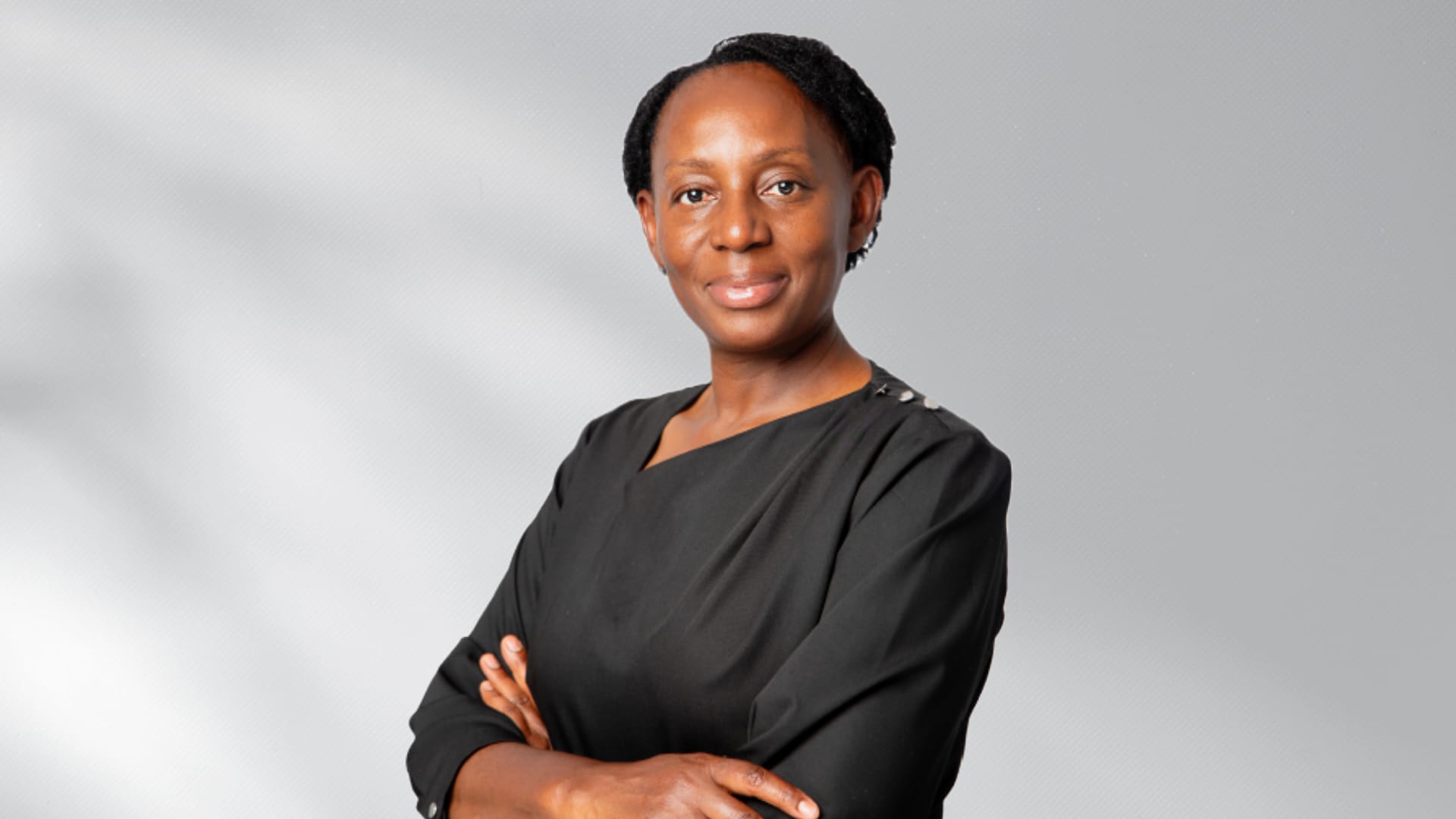
“Currently, we have 31 resident physicians. That is a big number considering the program is only five years old.”
Dr. Mpundu Makasa
The family medicine program, which Seed Global Health conducts in partnership with the University of Zambia, is one of the initiative’s standout successes. Thanks in no small part to Dr. Makasa, who, in May 2022, became the program’s first graduate, making her Zambia’s first-ever locally trained family medicine physician. Since completing the course and receiving a Master of Medicine in family medicine, she has taken on a leadership role, training new residents and advocating for family medicine in Zambia.
“We need to continue to support the program,” she says. “We have a huge task in front of us to really build the program and be able to train more people for us to make a meaningful difference within our health care system.”
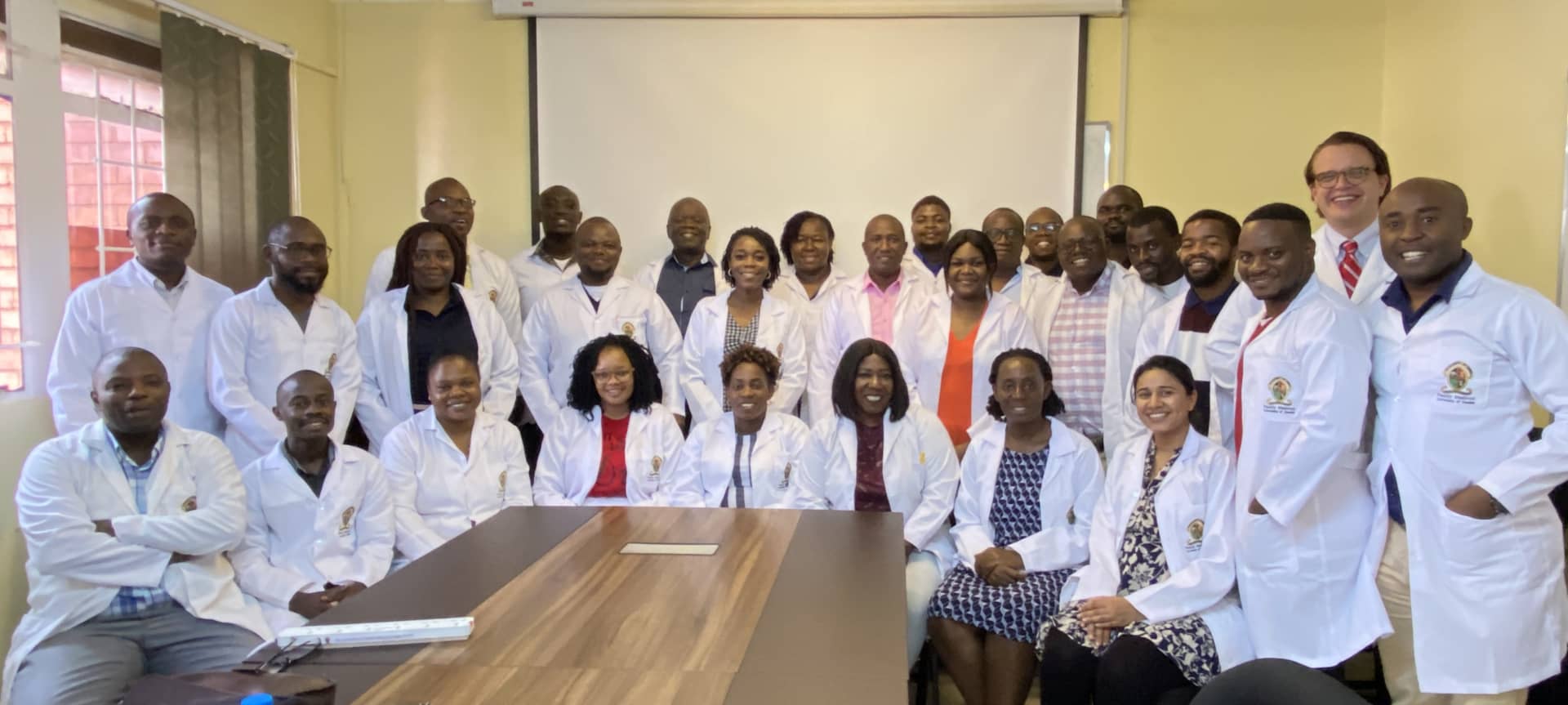
The program resident physicians and instructors earlier this year.
Our initial five-year commitment has now ended, but earlier this year, Takeda employees voted to extend our partnership with Seed Global Health for a further five years. The new initiative will involve training 6,000 health workers, who will serve a population of 76 million people across Africa.
Toshie Ando, Takeda’s head of global CSR and partnership strategy, sees this as a reflection of the values that have been core to Takeda since its foundation over 240 years ago. “We understand that tackling gaps in health care requires us to invest in innovation while taking a long-term view,” she says. “This further collaboration with Seed Global Health will bring our total commitment to 10 years, which puts us in a strong position to effect lasting change.”
The latest World Bank figures (2021) estimate the number of doctors in Zambia increased from 2018, to 0.3 per 1,000 people, so there is still plenty to be done. But the trend is positive, and Dr. Makasa is encouraged by the progress she sees.
“We have high hopes,” she says, “We’ve come a long way and we’re very hopeful that we can achieve more for the country.”
Share this story

